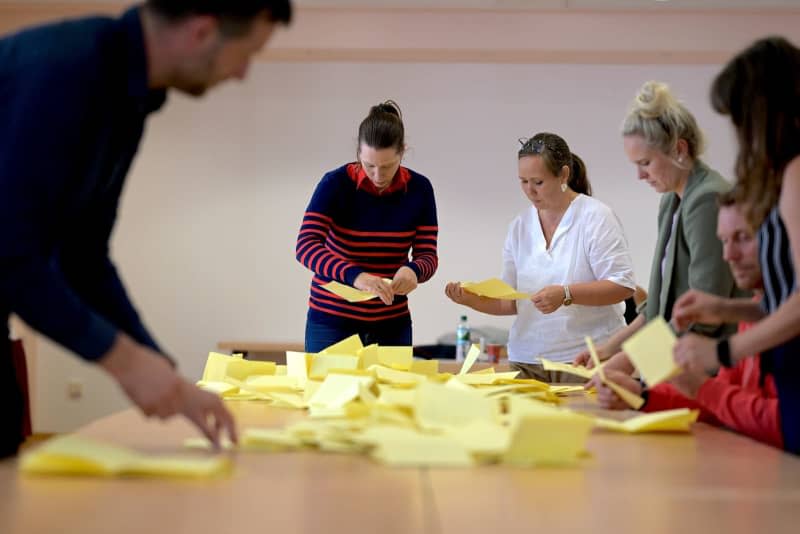Far-right gains in local elections in central German Thuringia

Local election results in the central German state of Thuringia showed gains for the far-right Alternative for Germany (AfD) party on district and city councils, but no major breakthroughs.
In Thuringia, 13 district administrators and 94 local mayors were elected on Sunday. Hundreds of local councils were also replaced.
The AfD, whose state-level party in Thuringia is considered particularly far-right, did not win the first round of the district administrator elections - but could become the strongest force in some of the district councils.
The Thuringian AfD is being monitored as a known right-wing extremist group by the state's domestic security service and the state-level AfD's firebrand leader, Björn Höcke, was recently convicted in court for knowingly using a banned Nazi slogan.
AfD candidates remain in the running for nine top municipal offices in run-off elections in two weeks. However, according to the results so far, an AfD candidate only appears to be leading in one district, Altenburger Land.
According to interim results, the AfD appears to be challenging the centre-right Christian Democrats (CDU), which has been the strongest political force in the state, which used to be part of the former East Germany.
Initial election results suggest the AfD could become the largest party on eight of the state's 17 district councils, as well as on the city council in Gera.
Some ballots were still being counted as of on Monday afternoon.
Partial results showed the CDU with 27.6% of the vote after 2,581 of the 3,047 constituencies had been counted. The AfD followed closely behind with 26.4%.
It is quite possible that the result will still shift, as the count in the state capital of Erfurt has not yet been completed.
While the AfD improved by almost 10 points compared to 2019, the CDU kept its share of the vote largely stable at this stage of the count.
The far-left Die Linke (The Left), the centre-left Social Democrats (SPD) and the Greens suffered losses. Those three parties currently govern Thuringia in a left-wing coalition government.
Mainstream parties in Germany have maintained a so-called "firewall" against forming coalitions with the AfD or cooperating with them in government.
But further gains in some local elections could make freezing them out of government and maintaining the firewall harder.
"It will be even more difficult to exclude them, in some cases it will no longer work at all," Oliver Lembcke, a political scientist at the Rhur University in Bochum, told dpa.
The CDU will be under particular pressure because of the strength of the far-right at the local level, Lembcke said.
The president of the Thuringian Association of Municipalities and Towns, Michael Brychcy of the CDU, took a similar view.
When elected AfD politicians sit on local councils, you can't act "as if there is a firewall," Brychcy said.
However, official CDU policy forbids any cooperation with both the AfD and Die Linke.
The national AfD has struggled with a series of embarrassing scandals in recent weeks, including Höcke's criminal conviction.
The AfD's top candidate for the upcoming European Parliament elections, Maximillian Krah, recently made comments defending some members of the infamous Nazi SS paramilitary organization and has also been caught up in a Chinese espionage scandal involving a top aide.
The number two on the AfD's European election list, Petr Bystron, is under investigation over suspicions of bribery and money laundering following Czech newspaper reports alleging he had accepted payments from a pro-Russian propaganda outlet.
"The AfD has messed up in this way because it has presented the worst possible image in recent weeks," said Lembcke, the political scientist.
In the district of Hildburghausen, where no AfD candidate was on the ballot, a well-known neo-Nazi candidate from the Alliance for the Future of Hildburgshausen (BZH) also made it into the run-off.
A 2022 report from Germany's domestic intelligence agency said the BZH is "developing into the leading neo-Nazi group in the district of Hildburghausen."


